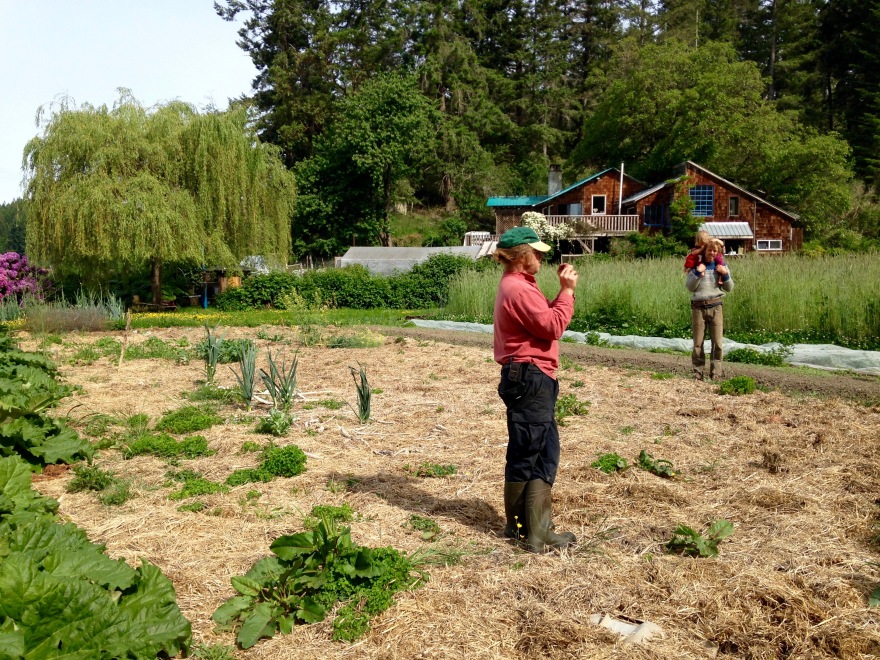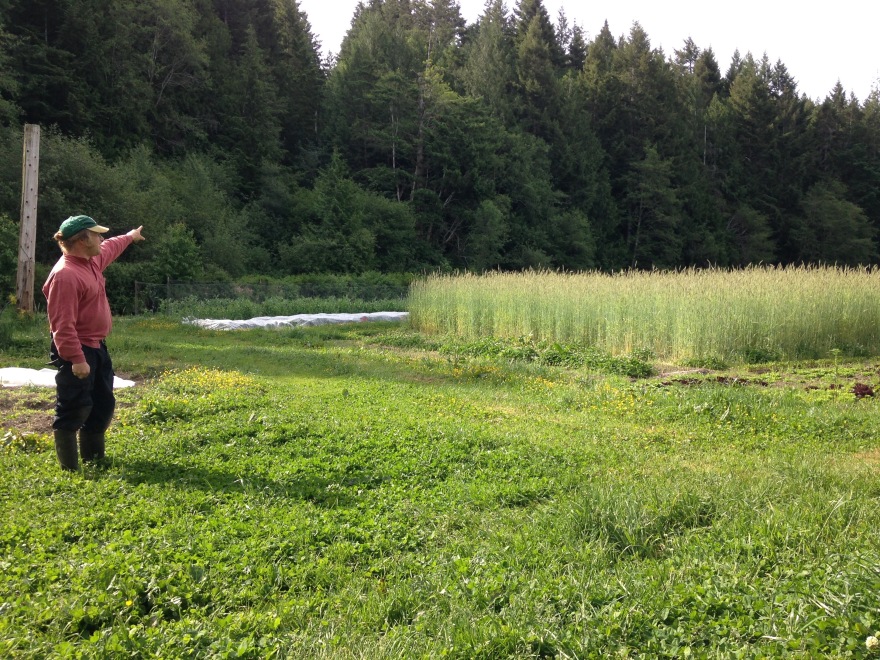Hotter and drier: a common theme that’s hitting the West Coast’s summers. To many, this change is for the better; who doesn’t love a seemingly everlasting, sunny summer after a long, rain-drenched winter? However, the ever earlier summers we are experiencing as climate change progresses may not be so sunny for farmers.

Along BC’s coastline, the spring and summer growing seasons are starting earlier each year as well. It was Tamara who pointed out that her strawberry plants were already producing large, juicy berries, something that used to not occur until June. So there are “positive” effects to climate change in that sense: there is an opportunity to grow more food in BC with an extended growing season. However, these longer, drier summers that facilitate those juicy, local strawberries in the middle of May also mean longer periods without rain. This can create prolonged droughts and eventually strain the water supply. It was Adam, who is in charge of Linnaea’s Production Garden, that noted he used to not have to start watering the garden until June and now has to much earlier due to the sporadic spring weather. Growing more food is great, but becoming dependent on food being grown in areas with increasing water scarcity can lead to scary consequences (see California).
At one point, we were standing in Linnaea’s Production Garden, listening and watching as Adam showed us his detailed records from the previous years, which he uses to compare with the current year (he’s still a firm believer in paper copies). While his choice in language might not be suitable for all audiences, Adam’s message was clear: it’s getter hotter and fast. It seems each year is achieving a new hottest temperature record, with 2016 well on its way to being the new hottest year on record. The effects of climate change are already hitting the Cortes farm: last summer was the first year the cistern they use for the Production Garden ran dry. Despite the garden’s opportune location right above the water water, Linnaea, like many other farms, is already feeling the increasing pressure of water scarcity.

Of course this does not mean all is lost for food production on the west coast. Adam explained to us that it is easier to make the necessary adjustments required under a changing climate with smaller farm systems. Indeed, out of Linnaea’s 316 acres, only around one is reserved for the Production Garden. Adam also advises paying close attention to the phenology and use nature’s cues when past records might not be applicable anymore.
It is important to remember, as we all praise the longer, drier summers we are getting accustomed to, the long-term consequences. Yes, it can feel amazing to shed the layers in April, as we did this year, but at what cost?
